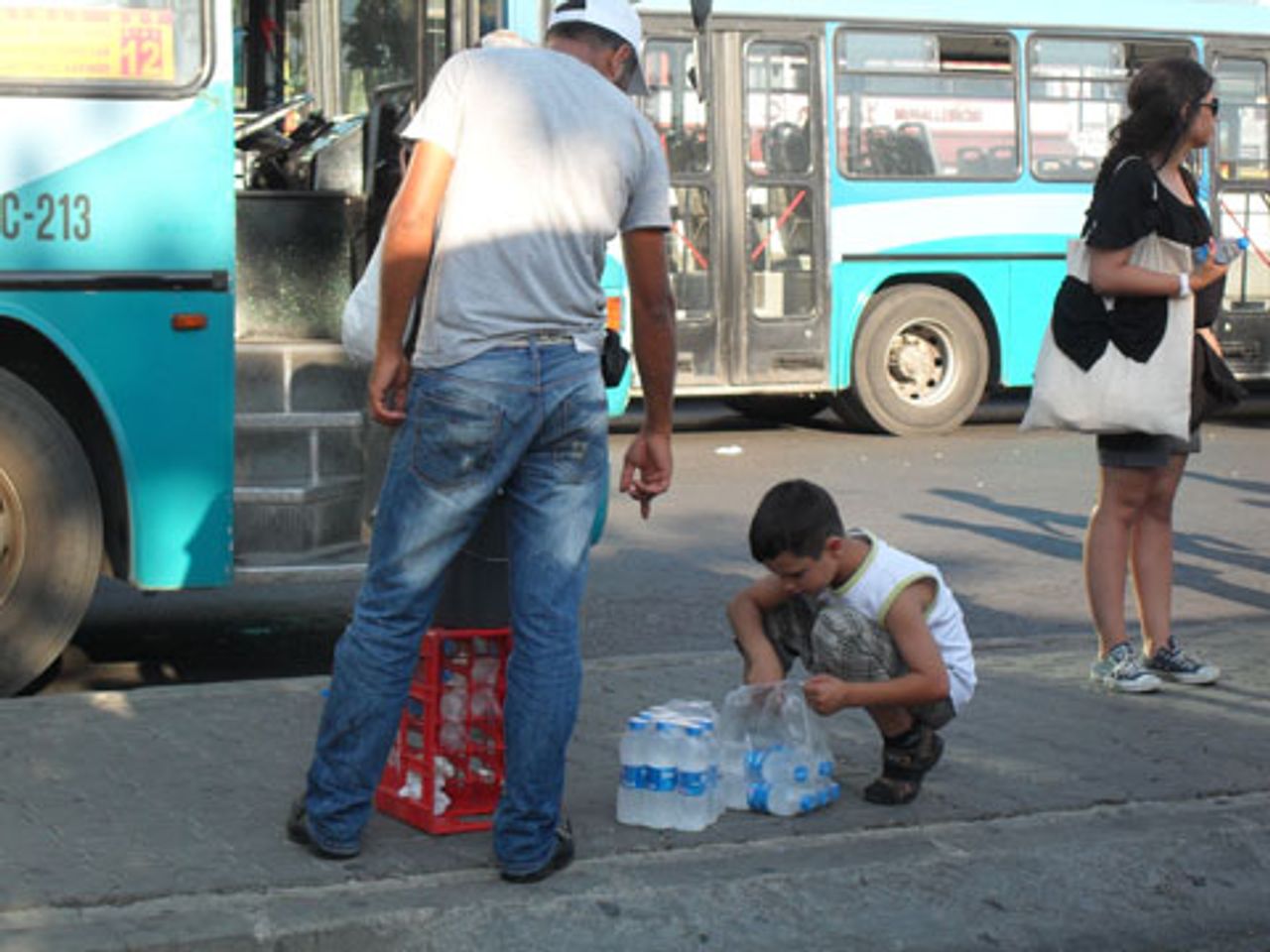Nearly 20 percent of the population of Turkey lives below the poverty line. According to a 2009 report by the Turkish Statistical Institute (TurkStat), out of an estimated population of 77.8 million, approximately 15 million are struggling to obtain the basic necessities of life on a daily basis.
 Young child working in streets of Turkey
Young child working in streets of TurkeyThe most glaring indicator in Turkey of economic inequality and social stratification is the high rate of child labour. TurkStat calculates that at least 6 percent of children between the ages of 6 and 17 are working. More than 15 percent of children in this age group do not attend school, which points to how, as a consequence of the global economic crisis, child labour is rapidly increasing and depriving children of their basic rights.
In its 2009 report “Give Girls a Chance: Tackling Child Labour”, the International Labour Organisation rated Turkey as the third worst out of 16 countries, following Mali and Senegal, in terms of weekly work hours for children. Child labourers work on average 51 hours per week, and more than half of children 6 to 17 years old work to support their families’ household income, many in order to help save them from starvation.
The majority of working children belong to the Kurdish and Roma communities, two of the most marginalized groups in Turkey. One major cause of the increased numbers of child workers was the forced migration of millions of Kurds in 1993-1998, when many families were forced out of the eastern parts of the country into the larger cities in the west, many settling in shantytowns. Many families still live under extreme conditions of poverty, leaving them with no other choice but to make their children work.
Child labourers in Turkey work in agriculture, manufacturing, trade, service and other sectors of the economy. These young workers are easily exploited by the profit-seeking industries, because they work for minimal wages and do not ask for benefits. Many work under hazardous and life-threatening conditions, which has resulted in numerous fatalities and physical injuries. Other children work on the streets to earn money by selling bottles of water, chewing gum, napkins and other household products.
Hassan Aytac, now 52 and self-employed, used to work at a pipe factory in Istanbul at the age of 15. When asked about the working conditions for youth, he explained to the WSWS, “We were only seen as a resource, and no one looked after our safety and well being. One day at work, a bunch of pipes fell on top of me and injured my back and waist. I’ve had problems with by back ever since”.
Under the government of Prime Minister Recep Tayyip Erdogan and the AKP (Justice and Development Party) there is no welfare system to protect children’s rights. Instead, the government promotes short-term “solutions”, such as handing out free coal and food to the poor. These policies serve only to perpetuate social inequality, hence child labour.
According to the Turkish ministry of finance, Turkey’s gross national income was estimated $700 billion in 2009. Of this, $157.7 billion is controlled by the Turkish government, with $127.6 billion coming from tax payments. The majority of the nation’s wealth circulates in the private sector. These figures show that the privatisation of the market, encouraged by the government, has led to a vastly unequal distribution of Turkey’s wealth.
Among other reasons, the European Union has cited Turkey’s failure to protect the rights of children, including child labourers, as a reason for denying Turkey membership in the EU. One of the criteria for granting membership is a requirement that Turkey liberalise and integrate its economy according to EU standards. However, the privatisation of the national economy has, in fact, led to an increased gap between the rich and the poor. The contradiction and hypocrisy in the EU’s requirement is evident since the capitalist profit system is the prime cause of poverty and child labour in Turkey.
